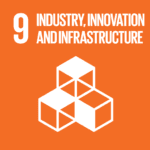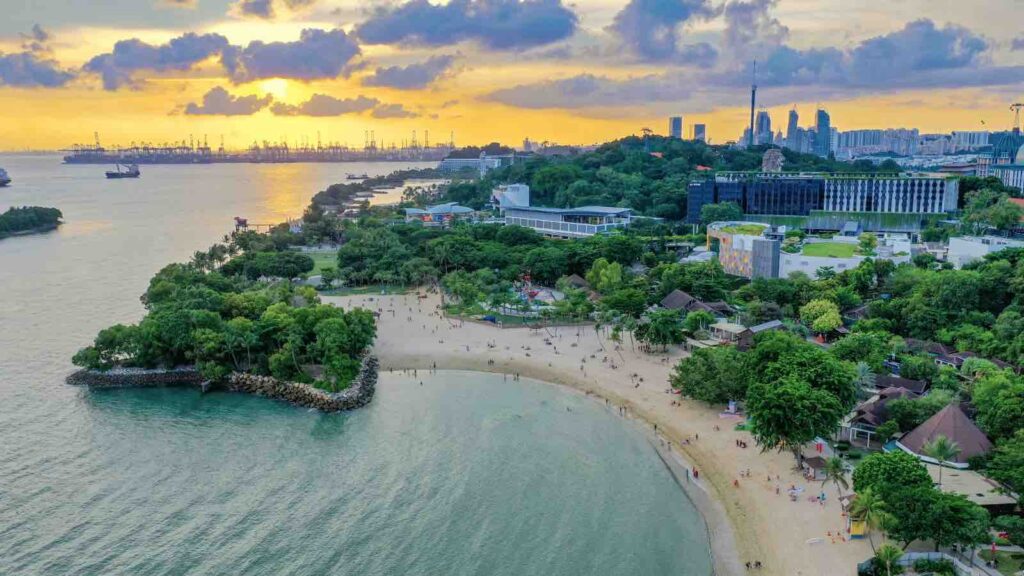Through NetZeroHub.sg, local businesses now have access to over 200 localized emission factors, making sustainability reporting more accurate and accessible than ever.
SINGAPORE — As companies worldwide grapple with meeting sustainability targets, Singapore has taken a bold step forward with the launch of a national online emissions registry. Through NetZeroHub.sg, local businesses now have access to over 200 localized emission factors, making sustainability reporting more accurate and accessible than ever. This groundbreaking initiative, spearheaded by the Singapore Business Federation (SBF), is set to transform the way companies track and report their carbon footprints, helping them stay competitive in a low-carbon economy.
RELEVANT SUSTAINABLE GOALS



The Power of Localized Emission Factors
For Singaporean companies striving to reduce their greenhouse gas (GHG) emissions, calculating accurate carbon footprints has been a challenge. Many businesses have had to rely on international emission factors from countries like the US or the UK, which often don’t reflect local conditions. Enter NetZeroHub.sg, a centralized online portal offering a wide range of localized emission factors for free, tailored specifically to Singapore’s unique industrial and environmental landscape.
The 200 emission factors span across eight key categories—building equipment, building materials, fuel, greenhouse gases, land transport, purchased energy, waste, and water. These emission factors, drawn from sources like the Energy Market Authority, the National Environment Agency, and the Singapore Green Building Council, are crucial tools for companies working to meet sustainability standards.
“Developing a local emissions database is essential,” said Lee Hui Mien, Singtel’s head of group environmental sustainability. She noted that in places like the UK and US, emission factors for certain activities—like security services—often include petrol vehicles, whereas in Singapore, those same activities are typically more manpower-driven. “The same activity in different markets can result in different emission factors,” she added.
A One-Stop Solution for Sustainability Reporting
Before NetZeroHub’s launch, companies in Singapore were forced to navigate multiple international sources to gather the necessary emission factors for reporting, making the process cumbersome and sometimes inaccurate. The introduction of this new portal solves that problem, offering businesses a single point of reference to access locally-relevant emission factors.
Kok Ping Soon, CEO of SBF, emphasized how the portal simplifies emissions reporting for businesses: “The online registry will make sustainability reporting much more convenient. Companies now have a trusted source for emission factors tailored to Singapore’s context.”
While NetZeroHub is not yet as comprehensive as its counterparts in the US or UK, it covers the majority of Scope 1 and 2 emissions—critical for companies tracking direct emissions from their operations and indirect emissions from electricity consumption. For Scope 3 emissions, which refer to indirect emissions from a company’s supply chain, the portal provides some factors but encourages businesses to offer feedback for further development.
Preparing for New Emissions Reporting Standards
The launch of NetZeroHub comes at a crucial time as Singapore tightens its sustainability reporting requirements. From fiscal year 2025, companies listed on the Singapore Exchange will be required to report their Scope 1 and 2 emissions—in line with the frameworks set by the International Sustainability Standards Board (ISSB). While the reporting of Scope 3 emissions is not yet mandatory, it is expected to become a requirement for larger companies by 2026, with a roadmap currently under development by Singapore Exchange Regulation.
The availability of local emission factors will play a vital role in helping companies comply with these new regulations. By having access to accurate data, businesses can ensure their sustainability reports are not only compliant but also reflective of real-world conditions in Singapore.
“This is a significant step toward helping companies understand their carbon impact,” said Hu Ching, head of SBF’s net-zero transition program office. “We’re making emissions reporting more precise and user-friendly, while encouraging businesses to engage with the platform and offer feedback on areas we can expand.”
What’s Next for NetZeroHub?
Looking ahead, NetZeroHub is set to expand even further. By 2025, new emission factors for sectors such as logistics, information communication technology, cleaning, and security services will be added to the registry, further enhancing its value to businesses. As more industries become involved, the potential for widespread sustainability reporting will grow, ensuring that all sectors are aligned with Singapore’s net-zero future.
The SBF also encourages ongoing participation from the business community. Companies are invited to provide feedback on any emission factors they need but aren’t currently available on the portal, enabling the registry to evolve in response to real-world needs.
Visit NetZeroHub.sg today and take the first step toward a sustainable future.
You may also be interested in :
UN Global Compact Network Singapore Announces Revamp Carbon Emissions Recording Tool




